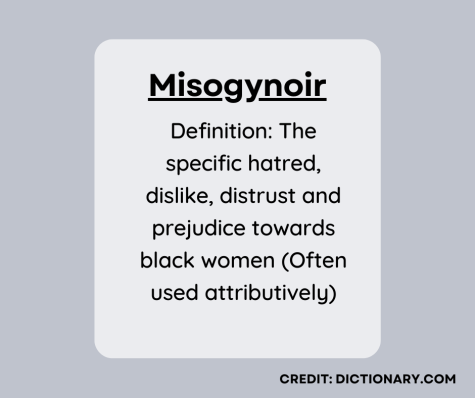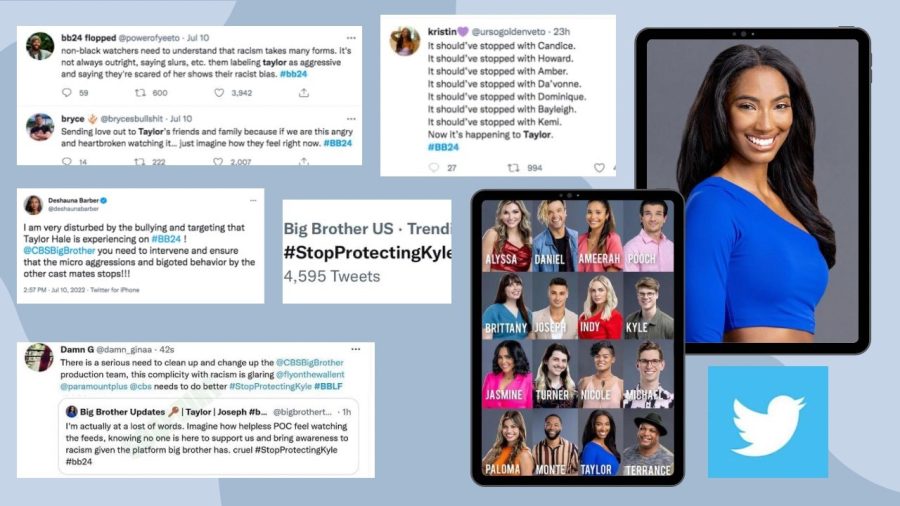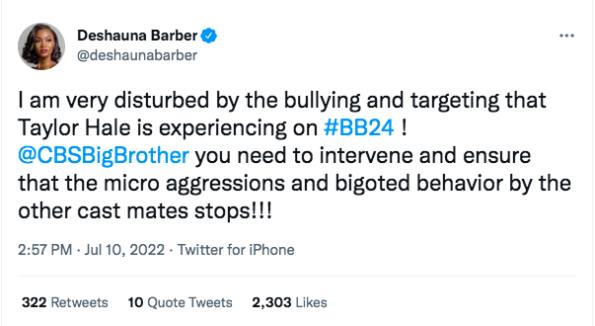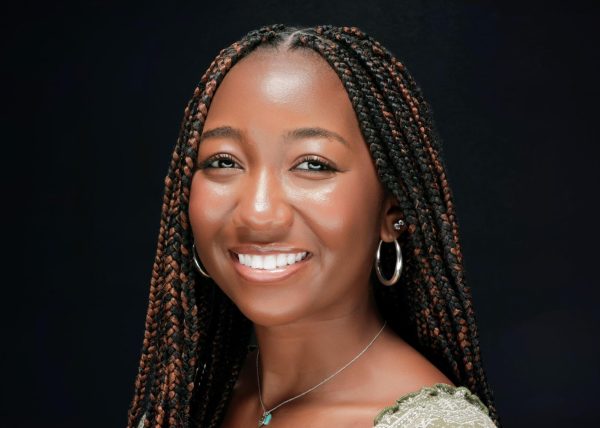BB24: Racism, Twitter and the karma of Taylor Hale
Twitter plays a major role in the relaying, distribution and commentary on the inner workings of the Big Brother house. Along with accounts like “Big Brother Daily” that posted live-feed quotes and competition updates, numerous fans offered their opinions on what transpired in the house. Longtime fans of the show utilized the platform to highlight and call out the misogyny and racism targeted at Taylor Hale and other houseguests of color, from Daniel Durston to Kyle Capener.
October 4, 2022
In the summer of 2000, television network CBS launched the first season of Big Brother (BB), a reality television show that watches cast members at all hours of the day. Every summer, 16 adults move into the Big Brother house, where power, privacy and perspectives play major roles. Over the past 22 years, Big Brother presented the TV genre with a new meaning of personal space, most heavily featured in the 80 cameras watching the contestants’ every move. Accompanied by the rise of social media, this unique aspect of the show plays a major role in fan participation. On the streaming network Paramount+, fans worldwide gain access to the BB house at any hour of the day. During this season, in particular, live feeder fans watched the acts of misogynoir perpetrated against houseguest Taylor Hale in real-time. Other contestants of color also faced racism at the hands of their temporary roommates. Fans of the show who do not watch live feeds may not see the transgressions in the BB house; discrimination still frequents the game much more than certain audiences give it credit for.

From the first moment Hale stepped into the Big Brother house, she faced judgment and criticism from other houseguests. In the early days of the game, the main perpetrator, Paloma Aguilar, managed to board other people onto the Taylor hate train almost instantly. An all-female alliance dubbed “Girls Girls” formed within the first week, excluding Hale and another female houseguest, Nicole Layog. Almost instantly, Hale became a target and was labeled a “threat” only days into the game. Various comments arose on her character, calling her aggressive and bad news, without taking the proper time to learn about her. This unfair treatment of Hale follows a similar pattern on Big Brother of the treatment of Black women within the BB walls in recent years.
Black women comprise 43 of the 316 houseguests in all of Big Brother and Big Brother: Over the Top. In more recent years, when black women encountered Big Brother, they met more prejudice than talks about the game and strategy. Since the fifteenth season of Big Brother, where houseguest Candice Stewart faced numerous racist comments at the hands of others, the lifespans of black women on BB became short-lived. Coupled with the numerous microaggressions, ostracism and blatant mistreatment, black female houseguests held the short end of the stick in recent years. During the nineteenth season of Big Brother, houseguest Kemi Fakunle faced bullying from Jack Matthews, who proceeded to target and evict her just four weeks into the game. In Big Brother’s 23rd season, houseguest Christmas Abbott spat microaggressions about fellow housemate Bayleigh Dayton.
“I definitely feel that there was an unwillingness to accept cultures that were different from yours, and it was highlighted through the race. To just hear these comments of how I was referred to as the cancer of the house, and I was toxic, and I needed to be cut out because I was a tumor… It was like, you guys didn’t even give me the chance to let you get to know me,” Fakunle said.
This trend of hate transpired into the most recent season of Big Brother, and other houseguests of color felt the force. In BB23, an all-Black alliance dubbed “the Cookout ” formed with a plan to ensure that a black houseguest won the season– the first in Big Brother history. The alliance accomplished this feat, with houseguest Xavier Prather taking home the $750,000 prize. During BB24, houseguest Kyle Capener made a comment about how all of the minorities in the house, which include Hale, Jasmine Davis, Terrance Higgens, Monte Taylor, Joseph Abdin and Indy Santos, could form a Cookout 2.0. Capener expressed his thoughts with fellow houseguests Micheal Bruner and Britany Hoopes, who relayed his remarks to the rest of the house, resulting in Capener’s eviction. BB fans on Twitter called out Bruner and Hoopes for only exposing Capener’s racist comments when it benefitted their game, and not with the intent of doing the right thing. Fans also took to the platform to address the ostracism and mistreatment of Hale and Abdin from houseguests, even ones they were aligned with previously.
Big Brother fans on Twitter created numerous memes in support of Hale’s journey in the game. For example, Taylor’s Kill Count, highlighting all of the houseguests she outlasted throughout the game who targeted her from Week One. Twitter created the tagline “Taylor’s karma”, because Hale lasted longer in the house than her biggest critics and nay-sayers. Fans also encouraged people to vote for Hale for America’s Favorite Player, a title that goes to whomever America loved the most.
“Social media is used in the game of Big Brother to dictate essentially the whole show. They use it for America to vote on who they think is the best player, leading to that player receiving a benefit once they win,” magnet sophomore Livie Duby said.
Casual fans of the program– viewers who only watch when the show premieres on CBS, not the live feeds– do not see the vexing behavior or discriminatory comments committed by houseguests if production does not air them. This prevents a significant portion of viewers from watching the unedited problematic nature of houseguests, altering their perception of the true colors of people in the house. This could cause casual audiences to question the legitimacy of claims made by life-feeder fans. While this fault does not fall on casual viewers, their acceptance of the hour segment as the whole truth enables production to limit or annex problematic tendencies of houseguests. While we viewers control what production airs on TV, casual viewers should dig deeper into the claimed conflict in the house and hold houseguests accountable, even if it did not air on Channel 46.
September 25, Hale made history as the first black woman to ever win Big Brother; with a jury vote of 8-1, she earned the grand prize of $750,000. She also became the first winner to ever receive the title of America’s Favorite Player (AFP), winning an additional $50,000, as well as serving as the third black woman in a row to win AFP alongside Da’Vonne Rogers and Tiffany Mitchell. In the midst of a season plagued with hatred, Hale’s kind-hearted perseverance in the face of misogynoir and hate will stand as a tale for the ages.








